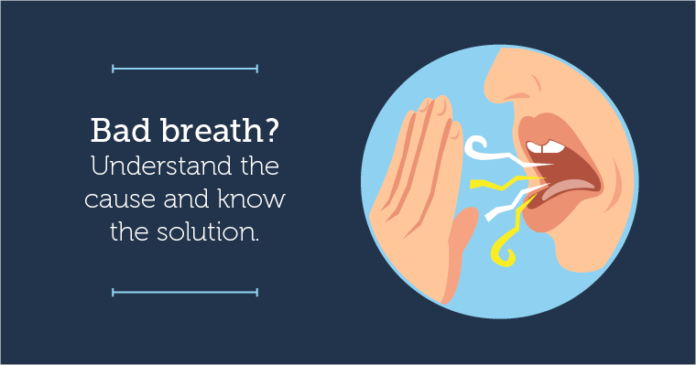In social situations, especially when you have to meet and converse with a lot of people, having bad breath can be embarrassing. If you frequently experience this problem, you can prevent bad breath, also known as halitosis, with a few simple lifestyle changes and dietary adjustments.
However, we first identify the causes of bad breath before moving on to helpful remedies.
According to experts, it may be an indication of underlying health issues that require immediate care in addition to being a sign of poor oral hygiene. It is brought on by substances like sulphur and ketones and can arise from food consumed or drugs taken by individuals. Overnight food particles in the mouth can ferment into bacteria and produce bad breath.
Why is foul breath a problem?
An individual’s psychology can be significantly impacted by bad breath. According to Dr. Preeti Nagar, dietician at Noida International Institute of Medical Sciences and Hospital, Noida International University, “keeping your breath fresh is important in social situations and meetings since an unpleasant breath, or a feeling as it is known in science, may be unsettling and have a poor effect on interactions.”
What is helpful?
It is well known that yogurt lowers oral hydrogen sulphide levels. “Halitosis is also reduced by the vitamin D-rich content of curd,” stated Dr. Dilip Gude, a senior consultant physician at Yashoda Hospitals in Hyderabad. Crunchy fruits and veggies high in fibre are also beneficial. “Diet rich in citrus fruits, like lemons and berries, also helps fight bad breath,” Dr. Gude stated.
Foods high in carbs and protein, which loosen food particles lodged between teeth, can help prevent bad breath.” Additionally, eating or chewing parsley will aid in the oral battle against microbial growth.
When attempting to treat bad breath, it’s critical to remain hydrated. Dr Nagar claims that water can be used to get rid of food particles and bacteria that cause odours. Dr. Nagar stated, “Drinking enough water throughout the day not only promotes general health but also helps avoid dry mouth, which is a typical source of foul breath.”
The following foods can increase saliva production: pears, apples, celery, ginger, turmeric, bananas, carrots, and cucumbers. “It is crucial to rinse with water (mouth and throat) after consuming solid food or liquids, particularly to reduce the risk of halitosis,” Dr. Gude stated.
Furthermore, chewing gum without sugar has been shown to reduce halitosis.
In addition to dietary decisions, maintaining good dental hygiene practices is essential. According to Dr. Nagar, regular brushing and flossing help get rid of plaque and food particles, both of which can make bad breath worse. “A tongue scraper is an effective tool for removing germs from the surface of the tongue, which is often the cause of oral odour,” Dr. Nagar stated.
Although certain foods can help treat bad breath, it’s crucial to pay attention to what you eat to avoid aggravating the condition. Strong-smelling foods, like onions and garlic, can leave a lasting impression on the breath, which makes them less than ideal when mingling with others or conducting business in settings where having clean breath is essential, according to Dr. Nagar.




























